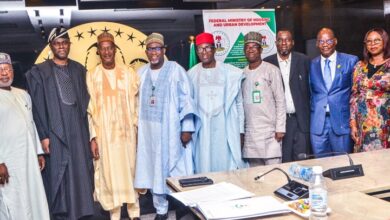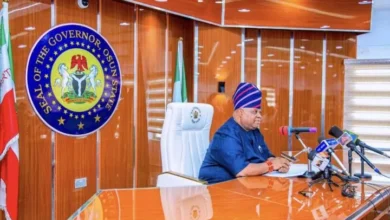Deputy Speaker, Kalu Bows to Pressure, Withdraws Controversial Indigeneship Bill

The Deputy Speaker of the House of Representatives, Benjamin Okezie Kalu late Tuesday bowed to pressure by withdrawing the controversial Indigeneship bill.
The Indigeneship Bill, which has passed second reading proposed amendment to the constitution to grant indigene status to individuals who have resided in a state for 10 years or married a native.
However, the Bill has ignited deep controversy across Nigeria. Some analysts had posited that the Bill is against the spirit of Nigeria’s federal structure and inter-ethnic relationship.
“It reopens ideological wounds from the past, threatens ancestral sovereignty, and risks sparking political and ethnic conflict under the guise of inclusion. Nigeria’s identity as a federation is rooted in the recognition of its diverse ethnic nationalities. Indigeneity is not a matter of administrative convenience—it is a sacred cultural and historical bond between people and land. Granting this status based on mere length of stay or marriage undermines this bond and sets the stage for future conflict.
“This bill will not bring harmony. Instead, it will pit communities against one another. Settlers may seek to claim political power in host communities, marginalising the original inhabitants. The potential for electoral manipulation and cultural erosion is immense,” Gloria Adebajo-Fraser said in an article in The Punch newspaper.
Also, some Yoruba groups and others have rejected the Indigeneship Bill, calling for its withdrawal.
While bowing to pressure, Kalu, in a statement on Tuesday night, said he decided to withdraw the Bill in the light of the concerns and constructive feedback received from various stakeholders regarding the bill.
The Deputy Speaker added that the Bill Analysis Report, forwarded by the National Institute for Legislative and Democratic Studies (NILDS) also made it imperative for him to step down the bill at this time.
Despite withdrawing the Indigeneship Bill, Kalu argued that states should make laws that would allow settlers to benefit same rights and privileges enjoyed by indigenes without any form of discrimination as rightly provided for in the constitution.
“Though the Bill seeks to achieve some commendable objectives, however, this can be achieved through enactment of law,” he said.
He also noted that if the Indigeneship Bill is passed, it can pose challenges with time, especially on the issue of double or multiple indigenship,” the report stated.
Kalu who is the also chairman of the Constitution Review Committee of the House said that he is committed to ensuring that every legislative proposal reflects the wishes of the people.
“As leaders and Representatives, we remain committed to ensuring that every legislative proposal reflects the aspirations of the people we serve.
“The Constitution Review process remains an open, inclusive, and participatory exercise, and no provision or proposal will be pursued without adequate dialogue and consensus-building.
“I therefore call on citizens to continue engaging constructively with the House Committee on Constitutional Review as we work together to build a more just, united, and prosperous Nigeria”, he said.





